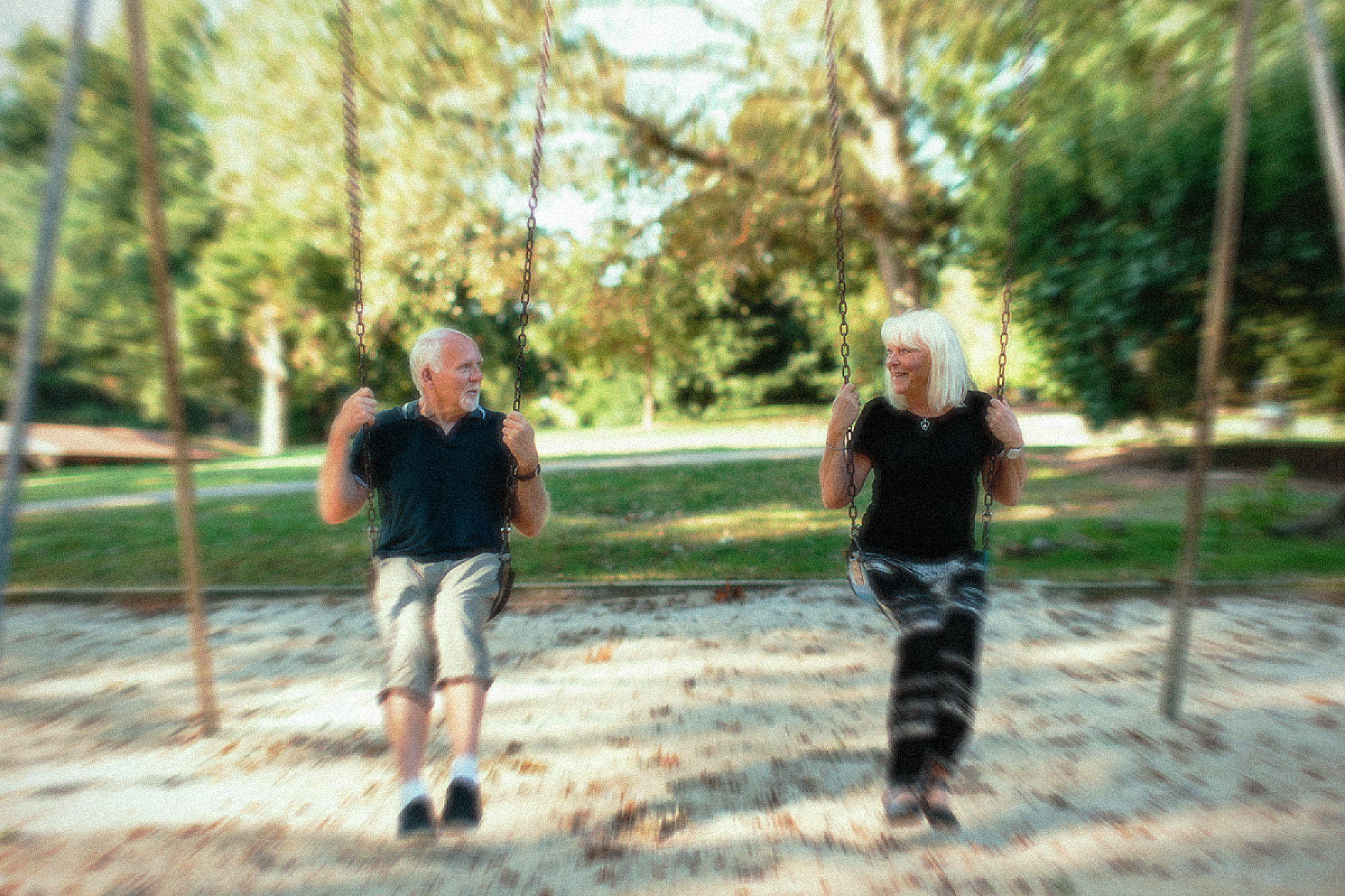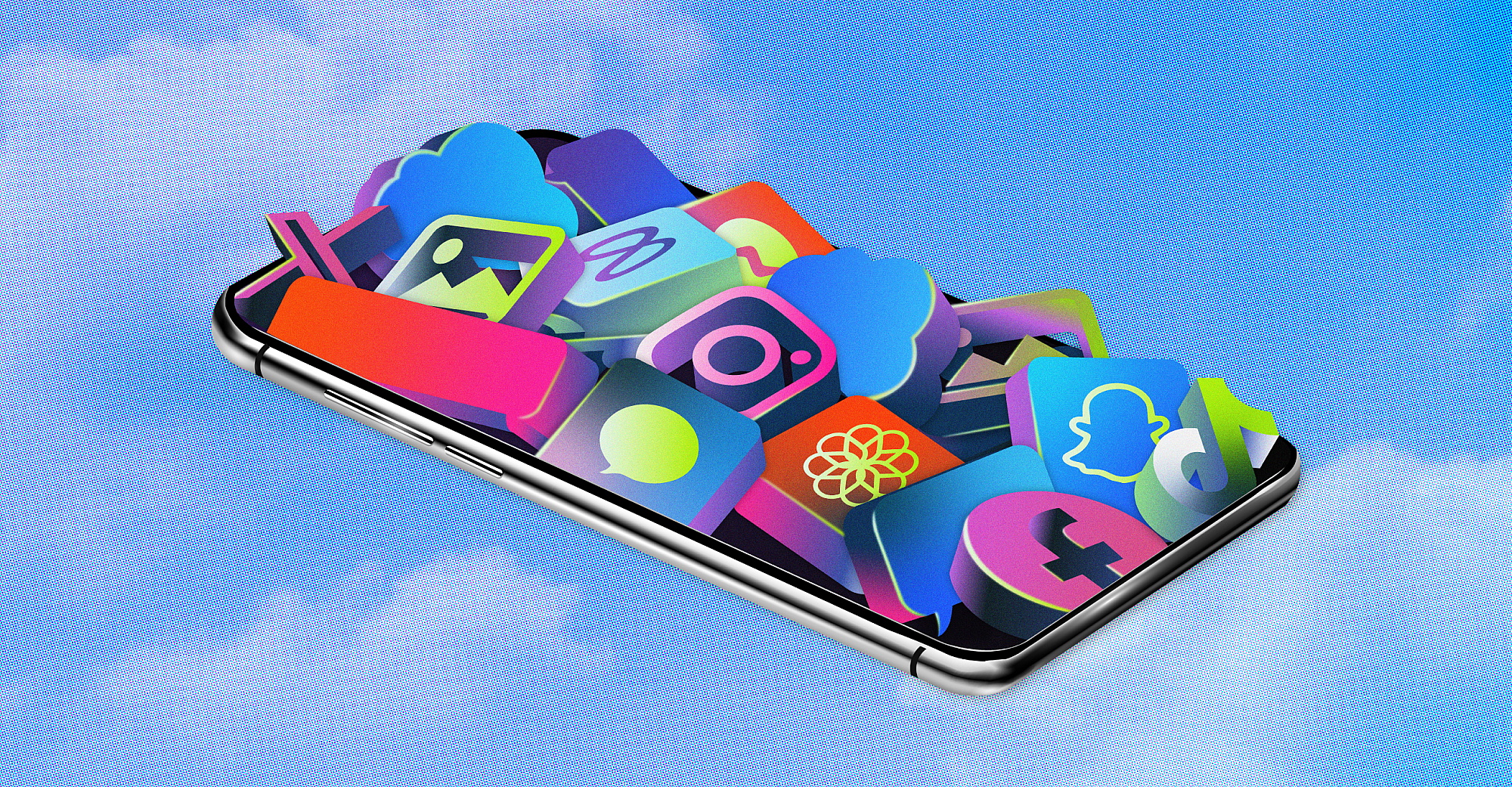
- Text Carolyn Cutrone & Maggie Fischer
- Design Jasmine Bae
Although they are plagued by worries about the future and earning enough money to live comfortably, according to a 2023 study by Intuit, Gen Z prefers to spend money now on personal growth and well-being rather than save their money for a later date. Trendy approaches to mindfulness that focus on experience rather than products, like awe walks—intentional strolls meant to foster a sense of wonder and other restorative benefits—are on the rise, as well as more traditional offerings like meditation apps, going to spas and joining expensive gyms, proving that Gen Z is a key group driving the rise in mental wellness spending.
While many mental health struggles require professional help, we explored the mental wellness journeys of five Gen Z D1Aers and learned how they splurge on improving their mental health with experiential solutions, as well as how marketing influences those wellness purchases.
@katina.bajaj strangers are just ppl waiting for you to say hello! try it + tell me what happens 🥰 #awewalk #wonder #awe #synchronicity #mindfulness #mentalhealth #mentalhealthawareness #creativity #strangers #loneliness #happiness #wellbeingtiktok #learnontiktok #habits #slowliving #mentalhealthwalk #personalgrowth ♬ original sound - Katina, M.A. Psych, founder
Yohance Barton
Creative, New York City

Barton finds that his physical and mental health are deeply intertwined, recalling that after graduating college, he learned that while academic responsibilities may end, “you never graduate from staying in shape, taking care of your skin and your mind.” Recently, he splurged for a day at QC NY Spa on Governors Island after seeing the location marketed on TikTok. “I chose the spa because it felt like it was for young people. It felt cool,” he says. “In advertising agency terms, I felt like I was in their ‘target audience.’”
After lounging in the pools with a view of the Freedom Tower, Barton’s experience inspired him to start a new skincare routine at home. He swapped his grocery store products for something a little more high-end.
“As we get older, we naturally take on more responsibility, more stress, to a certain extent,” he explains. “But I wanted to make time to relax my body—and my mind. Now that I’m spending my own money on those experiences, I’ve found more value in them."
Marissa Levine
Senior Account Executive, New York City

Attending college during the COVID-19 lockdown caused Levine to deprioritize her mental health. It was easy to feel lazy, she notes. So once businesses began to reopen, she made a change; she started focusing on clean eating, which emphasizes eating whole foods, and committed to daily workouts. She also was inspired by a Pilates teacher, who taught her how to meditate, and discovered she had a passion for the workout and its low-impact approach. “Pilates taught me that mindfulness and being present is the whole journey, which is something I’m also trying to do with eating and [choosing] ingredients,” Levine says.
These habits contribute to Levine’s biggest expenses. She has a pricey gym membership and uses it for morning workouts every day. “It’s the most important thing I spend my money on—it gives me an outlet to go and do something about however I’m feeling that day,” she says. According to Levine, when her head feels good, she feels good—all of that matters to her day-to-day wellness. “I know I’ll perform better, I’ll be nicer, happier and more attentive at work.”
Rose Gould
Associate Communication Strategist, New York City

Gould noticed while she was in college, she coped with emotions by staying busy. “It ended up not working out well in the long run. I was pushing things off and internalizing [worries] more,” she explains. To help her focus on the present, she turned to reading, and to improve her confidence, she committed to regular beauty services. Reading was one of the only things that took her away from TV and phone screens which often led to comparing herself to other people’s accomplishments and daily lives. “[With reading] there are no pictures…and it is the only way I can fully separate myself [from feeling FOMO],” she explains.
Gould also allocates money for monthly manicures. Her nail routine started in high school when she worked as a cashier, and her mom suggested she get manicures to stop biting her nails. What started as a way to look polished for work turned into something that helped her mental health. “I noticed I couldn’t bite my nails, which helped my overall confidence,” she says. Now, Gould is more present during conversations because she feels put together. “It’s a weight off my shoulders and one less thing I have to be self-conscious about.”
Braelyn Diamond
Creative Strategist, Los Angeles

Diamond prioritizes bi-monthly hangouts with her friends to have consistent and meaningful conversation. “If there’s anything we need to vent about [we] have space to talk about it on a deeper level,” she says. With friends, Diamond’s activities vary from movie nights and dinners out in Los Angeles to puzzles at home.
However, planning outings means putting money aside monthly. Diamond abstains from eating out during the week if she knows she’s spending money with friends at a trendy restaurant over the weekend. “I splurge if I see [a restaurant] that is really ‘aesthetic’” she says. “We like places that look cute—that gets us excited to get together because we’ll get dressed up.” This also leads Diamond to purchase more clothing for going out and home goods and games for nights in, like special wine glasses and puzzles.
The spending is worth it to her, because the mental health benefits are clear. “If I’m having a stressful week, I’m definitely happier because we connect,” Diamond says. Although she has experimented with online talk therapy and exercise apps that she discovered on Instagram, Diamond says there’s nothing like interacting IRL. “To be able to talk to someone in person and be vulnerable, to build genuine connections where you know a person is listening, has been really important to me.”
Aryan Tabibzada
Cybersecurity Engineer, New York City

Music helps Aryan Tabibzada escape daily stress. Whether it’s listening to songs that mirror his moods, or finding community at shows—a judgment-free space where he can truly be himself—music is his way of taking care of his mental wellness.
“The energy brings me happiness…because someone else is feeling that same feeling,” he says. And even when Tabibzada’s not listening to a song, music is a constant companion because he’s also a musician himself. Not only does music provide a sense of clarity, freedom and community for Tabibzada, he also feels a sense of accomplishment with each new creation. “I feel like I'm doing something tangible, I'm actually creating an output,” he says.
But his passion isn’t cheap. Tabibzada attends shows once or twice a week and buys tech-forward new gear for his at-home studio setup which all requires using his annual music budget, which he always suprasses. “I justify it through my mental health,” he says. “Just like someone buys a piece of clothing, I’d rather spend it on [music]—it’s what I love to do.”
It’s no secret that Gen Z sees wellness as a journey with an individualized fit. And they often have a contradictory obsession with individualization: seeking out uniqueness while simultaneously searching for belonging within larger trends.
Brands can lean into this in different ways, tapping into loyal fans who have cultivated an affinity for their product or experience offering, and might want to further explore similar experiences or connect with like-minded customers.
If a favorite gym offers early morning classes, why not embrace the slog of the morning routine by partnering with a Gen Z fave gadget like the Hatch Alarm to help them wake up with ease? For restaurants with a strong foothold fostering community, they may consider selling a subscription for wine or guaranteed reservations, offerings VIP services to weekly customers, or a hosting kit that offers signature cocktail recipes for patrons to make at home.
With algorithmic-delivered businesses and influencers constantly vying for attention in the wellness category, there is no shortage of advice offered to Gen Z about how they could be taking care of themselves differently. As Levine says, “I can't listen to everyone.” But for the brands Gen Z already trusts and consumes, there lies opportunity to focus on what will actually work to help improve Gen Z’s mental health.



